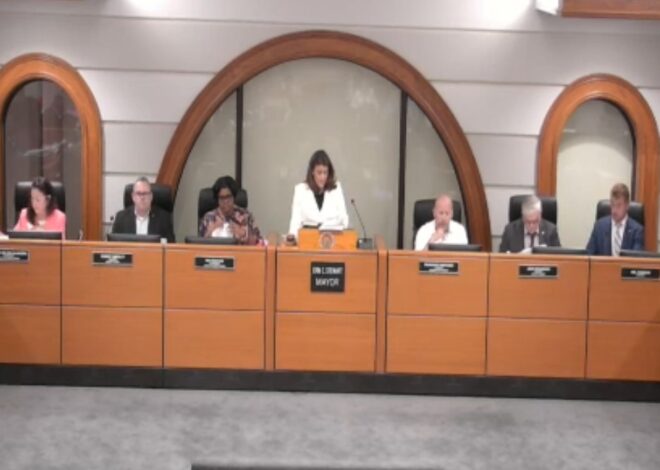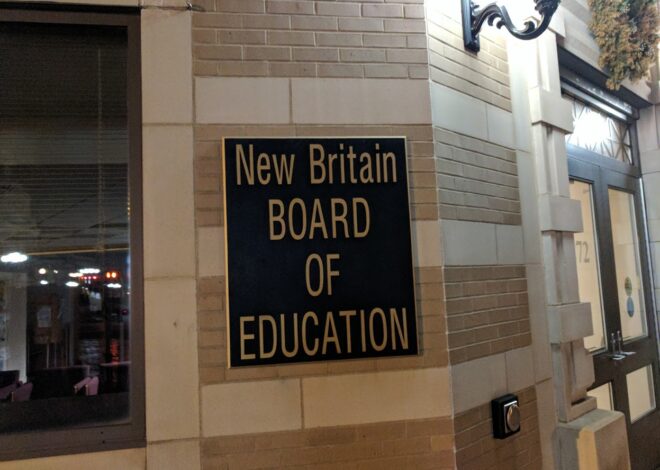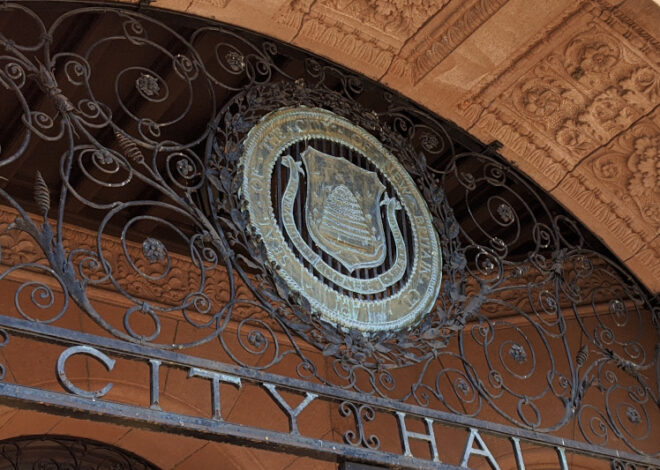New Britain Advances Towards Watershed Deal With Tilcon
By Nathan Cheatham
Executive Editor
The Common Council is moving forward on plans to expand gravel quarry operations in the Shuttle Meadow Watershed.
On June 8th, the council approved spending $396,700 for an environmental study on the impact of changing the use of the water company lands surrounding the Tilcon Connecticut Inc quarry operations on Bradley Mountain. The allocated money will be spent on an independent third party environmental consultant that is approved by the state’s Water Planning Council and the Council on Environmental Quality.

The expansion of mining operations, located at the peak of Bradley Mountain near the I-84 and 72 interchange, was originally proposed during former Mayor Tim Stewart’s administration in 2007. An identical plan has been proposed by current Mayor Erin Stewart. The proposed expansion would be to lease 131 acres of wooded watershed, increasing the size of their quarry. For this to happen the sections of class 1 and class 2 watershed would have to be approved for use by the state legislature.
In a 2002 report for the Connecticut Office Of Legislative Research, Joseph R. Holstead, research analyst, defined class 1 and class 2 watershed. His report read:
By law, Class I and II water company land is protected and preserved to safeguard the state’s water resources. Current law severely restricts transactions involving class I and limits transactions for class II land. These are lands located closest to water supply sources and require a Department of Public Health (DPH) permit to transfer or change their use. This requirement does not apply to class III land, which is land outside the watershed and more than 150 feet from a reservoir or stream that feeds it.
Tilcon Connecticut Inc would lease the land for 40 years, and at the end of the lease provide a reservoir that could be accessed by New Britain, Plainville and Southington. A reservoir at the peak of Bradley Mountain.
In February a bill was raised from the Public Health Committee in the state legislature that would have allowed for the use of the protected watershed lands. The Bill, An Act Concerning New Britain Water Company Land (S.B. 300), was amended by Sen. Terry Gerratana (D-6th) and Rep. Matt Ritter (D- 1st) to strike all approval of use of the land and to commission an environmental study by an independent third party on the impact of Stewart’s proposal.

According to the Public Health Committee Joint Favorable Report, Mayor Stewart supported the amended legislation during public hearing, “because the city needs an alternative water source. The reservoir that will be created as a result of the legislation will be the first one within 40 years in the State of Connecticut.”
The original proposal from 2007 earmarked the city to make up to $15 million over the 40 year lease, and the mining pit could potentially have the capacity to double the current water storage capacity for New Britain. Tilcon Connecticut Inc is also promising to give New Britain, Plainville and Southington more than 300 acres of its own land once mining was completed, replanting on part of the leased lands for gradual reforestation.
According to former mayor Tim O’Brien, the current capacity of the city water system fully covers the needs of the residents. In fact, the city sells its water to neighboring communities.
“If we really needed it,” said O’Brien, “we could bring in [Metropolitan District Commission] water, but we have enough capacity for our residents.”
O’Brien served as mayor of New Britain between the Stewarts, from 2011 to 2013. He was adamant that the water system does not need a new reservoir and said that the water system geography is roughly the size of the city itself.

“We have a water system that was designed for a heavy use industry,” said O’Brien, “that frankly isn’t here anymore. Even if we built every factory up again they would be using technology that didn’t use nearly as much water as the factories did 100 years ago or 50 years ago. So, we have an enormous potential for water in the city.”
The New Britain Herald published a letter to the editor in March from Attorney Paul Zagorsky who said that Gil Bligh, Director of New Britain’s Water Department, stated, “the city has a more than an ample water supply with six reservoirs, two well fields (similar to a smaller well) and one pond station in Bristol. That, combined with the interconnection with MDC (Metropolitan District Commission) at the Nepaugh Reservoir (in Collinsville), meets our 100-year drought criteria.”
With the signing of S.B. 300 by Governor Dannel Malloy on May 26th, New Britain will have 180 days to commission an environmental impact study. Once the study is completed the Water Planning Council and the Council on Environmental Quality will have 90 days to submit a report to the City of New Britain. The city will have 15 days to post the findings to newbritainct.gov and hold hearings within the city for the public.
The General Assembly will take further action once the study and all public hearings are brought back to the legislature.
Contact the New Britain Mayor’s Office at (860) 826-3300 between 8:15 a.m. and 4:00 p.m. for any questions or comments related to the proposed plan. A Facebook site on protecting the watershed is located at www.facebook.com/protectourwatershedsct for information on getting involved.
*Tim O’Brien currently serves as Board Treasurer of the New Britain Independent*



